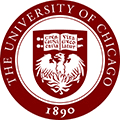Marisa de la Torre is Director for Internal Research Capacity at the University of Chicago Consortium on School Research. The University of Chicago Consortium on School Research is a small organization within the larger University of Chicago. The team is made up of members from a variety of backgrounds, from sociology, to psychology, to economics, to econometrics and more. They conduct research on a huge dataset from the Chicago Public School system. Previously, the team used SAS to handle and analyze its data, but more and more team members began coming to the group with experience in R. Realizing that R could be a powerful tool for statistical analysis, the Consortium's leadership decided to use DataCamp to help the team learn R and other data science tools. We spoke with Marisa de la Torre, Associate Director for Professional Development at the Consortium, to learn about her team's approach to data, how new data toolsets allow them to better use their information, and how DataCamp is helping the Consortium to fulfill its mission.
What is the role of your team?
We are a small organization that sits at the University of Chicago. We have people with many different backgrounds, and we do research on the huge dataset from the Chicago Public School system. This data goes all the way back to 1992.
Why did you decide to have your team learn R?
Historically, most people on our team have used SAS, since it was the only program capable of handling such large data sets. However, in the last few years, more and more people came to our team with R knowledge. Plus, while SAS is great for handling data, in terms of statistical techniques and analytics, SAS has not advanced quickly enough, while R is great for this. Many people were interested in learning R, and we decided with our team that it made sense to get more people into R.
Why did you choose DataCamp as the primary learning source for your team's education in R?
There are many learning resources for R, such as its own documentation, but DataCamp's interactive method of learning is great. You get an explanation on the concept, read the questions and then you can start trying it out right away while you get real-time feedback. Also, you have short videos with each chapter that are super helpful. These give users a bit of an introduction and helps when going through the interactive exercises. This interactivity helps people follow the courses and keeps them engaged.
How are you using DataCamp to learn R and data science?
At the beginning of every week, everyone sets his or her goals and decides what they want to learn. At the end of the week, we meet again, ask questions and tell each other what we have learned. The more experienced R users help everyone out at the end of the week. Our weekly meetings are there to make sure everyone finished their goals, and to provide accountability for the team.
DataCamp is ideal for this style of learning and working, since you can take your lessons for that week at any time and in any place. You can work through courses at work, at home—anywhere there's internet access. You don't need to spend a whole day in a classroom.
What's the roadmap for your team's data science education?
We are currently focusing on data manipulation with courses like dplyr. Next we will go into more detail with the R language itself via the Intermediate R course, and look at data visualizations with ggvis. After that our focus will probably shift toward the more statistical packages.
What's been the impact of learning R with DataCamp?
We clearly see, that by using R, we can get results that are much more detailed. For example, our reports and presentations use a lot of graphs, and in terms of graphs, R has many more capabilities than SAS. Complex graphs—like 3D graphs—are really hard to make in SAS, while in R they are very easy to create.
Furthermore, when there are new developments in statistics, these new techniques appear very quickly in R, while that can take some time in SAS. So by learning R, we have much faster access to cutting-edge data science techniques.
